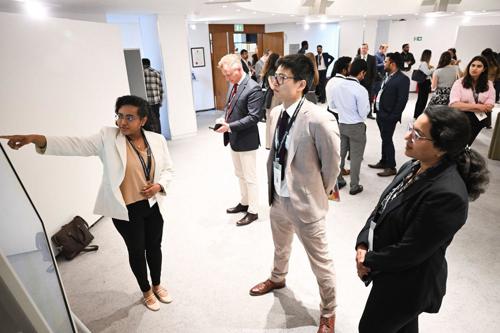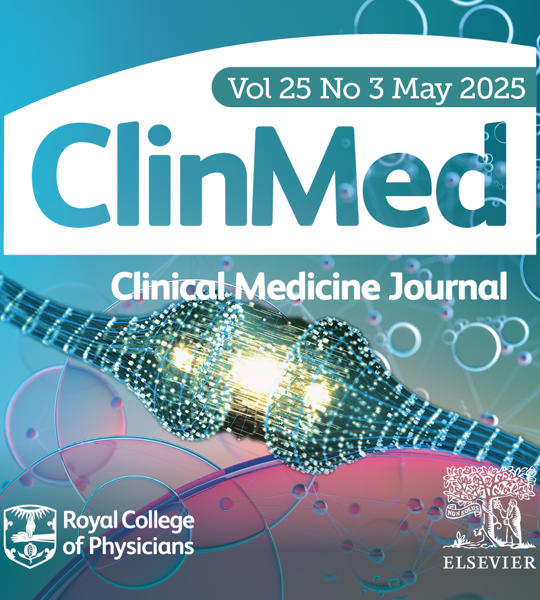The RCP has submitted a detailed response to the NHS England (NHSE) medical training review, warning that the postgraduate medical training system urgently needs to change to meet the needs of our next generation of physicians.
Drawing on our next generation survey of over 1,000 doctors, the RCP has painted a picture of a system where service delivery takes priority over education, doctors struggle to plan their lives and careers, and the training experience fails to reflect modern patient care.
Burnout and disillusionment
At the heart of our response is a warning about resident doctor morale. Only 44% of respondents to the next generation survey said that they were satisfied with their clinical training, and over two-thirds have considered leaving the NHS to work abroad.
‘They feel trapped on a treadmill. Rotating through a variety of short-term posts, managing intense workloads, and chasing senior doctor sign-offs – it’s not sustainable.’
Dr Anthony Martinelli
RCP Resident Doctor Committee (RDC) co-chair
Competition for internal medicine (IMT) and specialty (HST) training posts is also fuelling stress. Respondents to our next generation survey called for greater transparency, broader assessments and better consideration of geography and personal circumstances. Alongside the promised expansion of medical school places, we have called on the NHS to fund and deliver a major expansion in postgraduate training posts for the medical specialties.
A mismatch with patient demand
In particular, areas with higher health inequalities and/or a high proportion of older people living with frailty or chronic conditions should be funded for more training posts. The current distribution of training posts does not reflect population health needs. Underserved regions – often with older or more deprived populations – struggle to attract or retain resident doctors despite high patient demand. We have proposed using local data on health inequalities, consultant vacancies, and service plans to inform post allocation, and called for decentralised, college-accredited, ‘stay local’ training models that allow doctors to remain in one place for longer.
Redefining generalism
Many residents also find general internal medicine (GIM) training unrewarding and overly focused on the acute take – which, after all, represents just one part of generalist care.
‘A modern definition of generalism must include outpatient, community, and team-based care.'
Dr John Dean
RCP clinical vice president
Training should prepare doctors to lead multidisciplinary teams, manage complex conditions over time, and deliver care in community settings – reflecting how most consultants now practise.
Training environments under strain
Service pressure is eroding training quality. Inconsistent access to outpatient clinics and procedural skills, rota gaps, and limited supervision are common concerns.
We have recommended clearer national standards, protected educator time in job plans, and investment in core infrastructure – such as functioning IT, rest spaces, and workstations – to improve the learning environment.
Call for flexibility
A recurring theme is the need for more flexible training structures.
The RCP has proposed modular, competency-based progression, structured return-to-training programmes, and recognition of experience gained outside formal training posts.
‘Nearly half of respondents to our next generation survey told us that they want to work less than full time in future, but many report stigma and logistical barriers. The training system needs to better recognise individual competency and merit and put less emphasis on rigid, time-based progression.’
Dr Catherine Rowan
RCP RDC co-chair
Tackling inequalities
Our response highlights continued disparities for international medical graduates (IMGs) and doctors from minority ethnic backgrounds, including lower progression rates and higher burnout risk. It urges stronger induction for IMGs, mandatory anti-discrimination training for supervisors and disaggregated data on outcomes by ethnicity, disability and IMG status.
Preparing for the future
Training must also evolve to prepare doctors for the digital and community-based care models of the future. We have called for more training placements outside hospitals, a stronger focus on population health to align with the promised government shift to a prevention first approach, and better integration of digital health, AI and remote care into curricula.
‘This is about the kind of doctors we want to train – and the kind of care we want to deliver,’ Dr Martinelli concludes. ‘Without action, we risk losing a generation of doctors and compromising care for the patients who need them most.’







